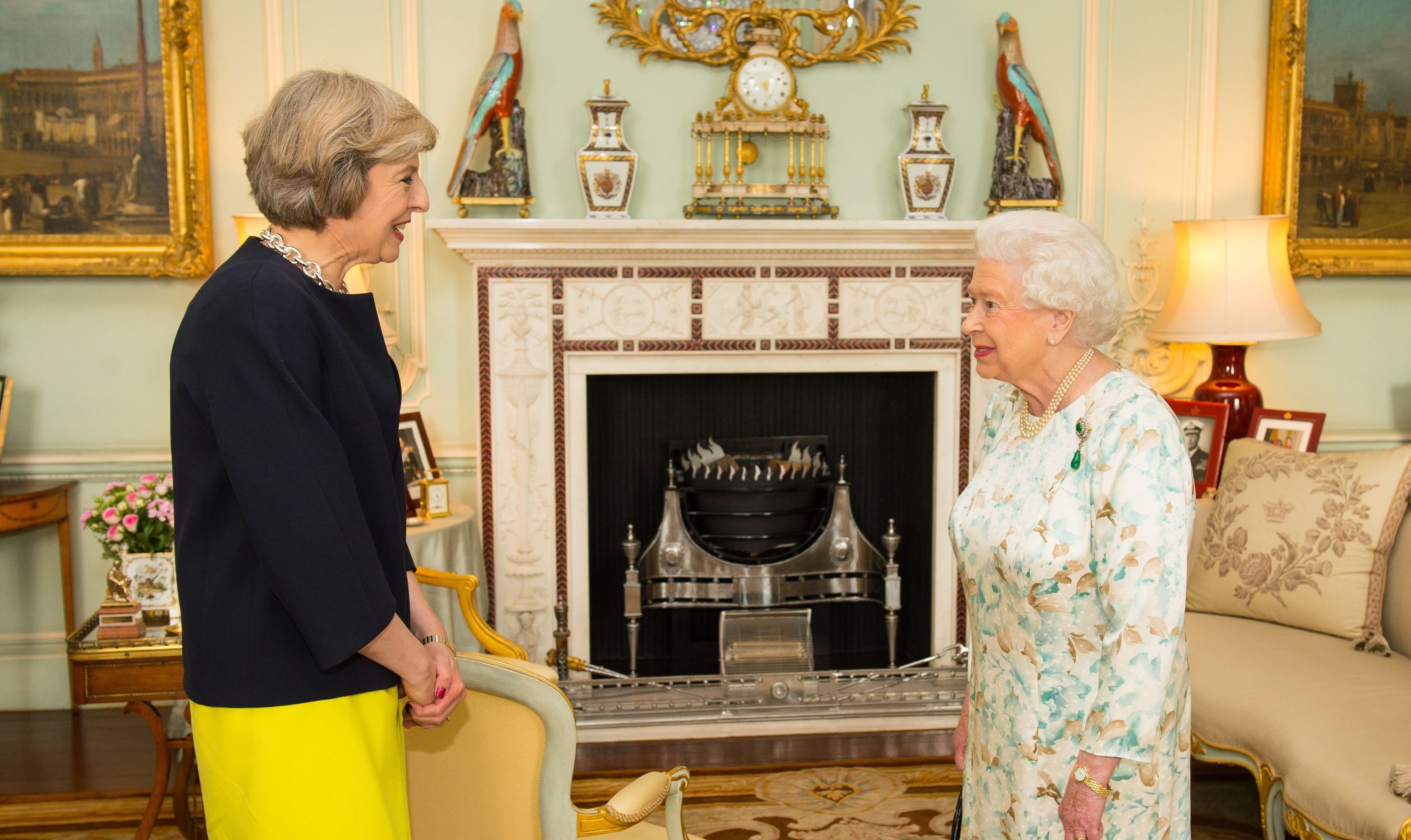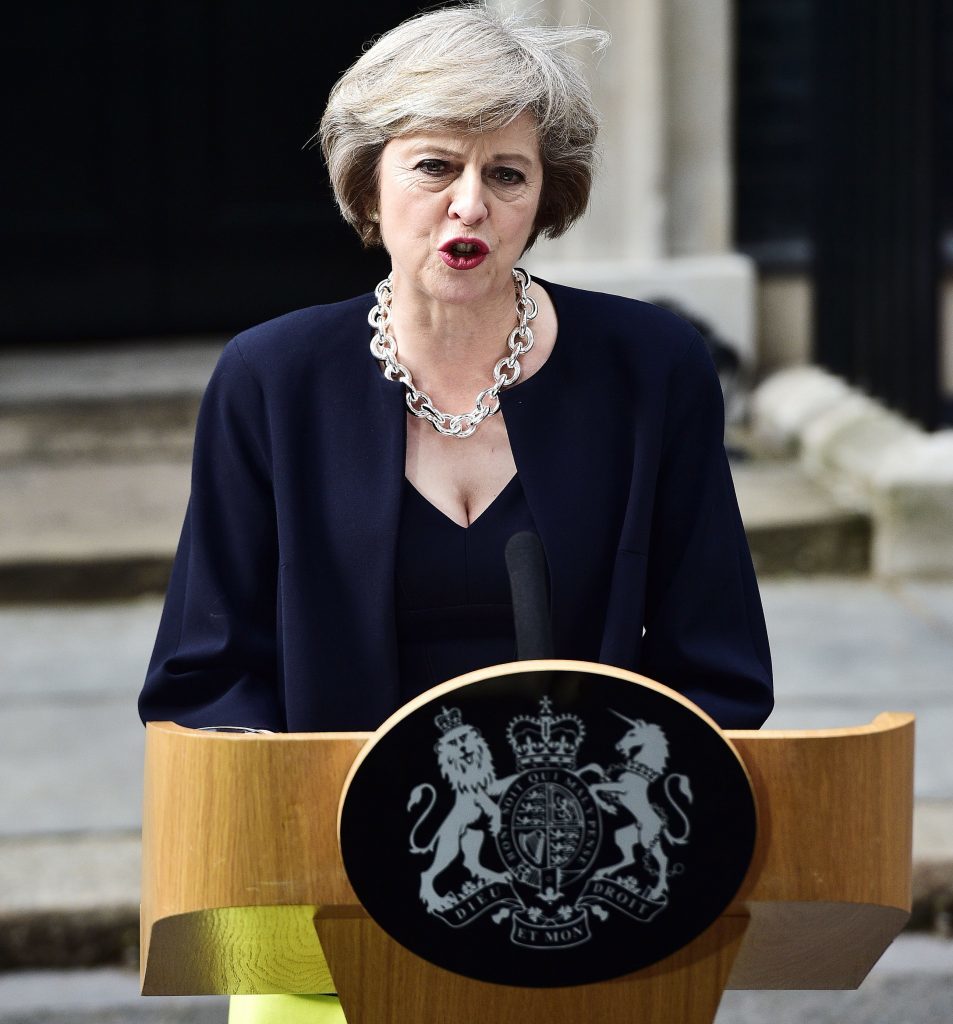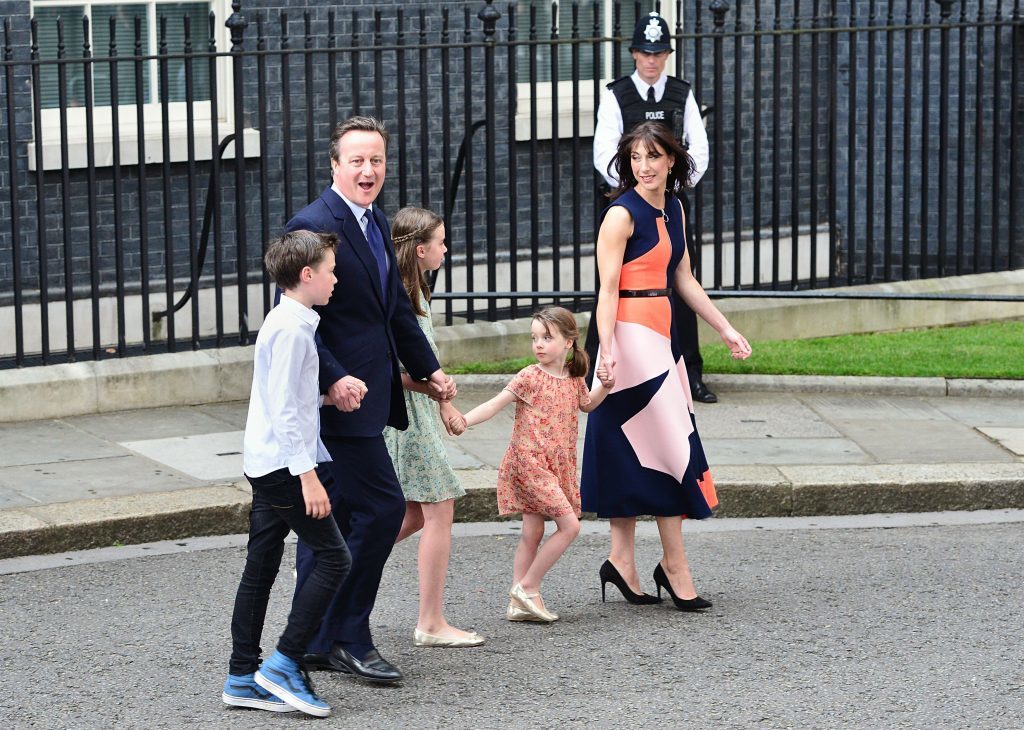Theresa May has been appointed the UK’s second female Prime Minister.
Mrs May’s elevation to the country’s most senior political role, at the age of 59, completes a whirlwind rise which was triggered by the unexpected referendum vote for Brexit on June 23 which brought down predecessor David Cameron.
She “kissed hands” with the Queen in a simple procedure at Buckingham Palace which made her the 13th holder of the post of Prime Minister and First Lord of the Treasury during Elizabeth II’s reign.
Mrs May arrived at the Palace by ministerial car with husband Philip, having set off from the House of Commons only after receiving the signal that predecessor David Cameron’s resignation as PM had been accepted by the Queen and that he had advised the head of state to appoint the former Home Secretary in his place.
Addressing the nation from Downing Street for the first time as PM, Mrs May stressed that the full name of the Tory party included the word “unionist” and she intended to try to keep the country together after a clear majority of voters in Scotland and Northern Ireland rejected withdrawal from the EU in the referendum.
“Not everybody knows this, but the full title of my party is the Conservative and Unionist Party, and that word unionist is very important to me.
“It means we believe in the union, the precious, precious bond between England, Scotland, Wales and Northern Ireland.
“But it means something else that is just as important, it means we believe in a union not just between the nations of the United Kingdom, but between all of our citizens, every one of us, whoever we are, and wherever we’re from,” Mrs May said.
Scottish First Minister Nicola Sturgeon has said it is “highly likely” that the SNP government in the Holyrood parliament will push for a second independence referendum if the country is faced with the certainty of leaving the EU.
Mr Cameron was accompanied by wife Samantha and children Nancy, Elwen and Florence as he left 10 Downing Street for the last time as Prime Minister.
Standing with his family outside the famous black door, Mr Cameron said that he believed he was leaving the country “much stronger” and the economy “immeasurably stronger” after his six years in office.
In a clear bid to define the legacy that he will leave behind him, he spoke of his pride at achievements including reducing the deficit, legalising gay marriage, boosting employment, introducing the National Living Wage, increasing international aid spending and cutting waits for NHS treatment
And he paid tribute to Samantha, who he described as “the love of my life” who had “kept me vaguely sane”.
Mr Cameron said he was “delighted that for the second time in British history the new Prime Minister will be a woman, and once again a Conservative”.
And he said Mrs May would provide “strong and stable leadership in delivering the Conservative manifesto on which we were elected” and wished her well in negotiating “the best possible terms for Britain’s exit from the European Union”.
Mr Cameron concluded: “It has been the greatest honour of my life to serve our country as Prime Minister over these last six years and to serve as leader of my party over 11 years.
“And as we leave for the last time, my only wish is continued success for this great country that I love so very much.”


